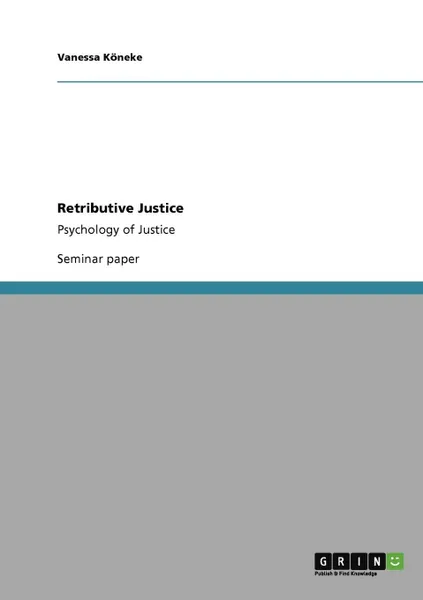Retributive Justice 12+
Автор: Vanessa K. Neke,
Vanessa Koneke
68 страниц
Категория: Психология
ISBN: 9783640938421
Язык: Английский
📘 Seminar paper from the year 2009 in the subject Psychology - Social Psychology, grade: 1,3, University of Cologne (Institut für Wirtschafts- und Sozialpsychologie), course: Psychologie der Gerechtigkeit, language: English, abstract: It might seem like putting the cart before the horse: Unlike distributional justice, retributive justice does not deal with how to set up justice, but how to smooth out injustice. But actually every stick has two ends. So does the "cart" justice. Justice is done, when everybody gets his just deserts. And while just deserts refer to rewards on the one end - the end of distributive justice, they refer to punishment at the other end - the end of retributive justice. The issue of retributive justice arises after a wrongdoing like a crime has occurred and addresses the task of imposing an adequate sanction to the wrongdoer. Thus retribution is rather linked to reconstitute justice than to constitute it. But how exactly should the horse push? To say, how should justice be reconstituted? Giving the offender his just deserts seems to be a facile task. But what are just deserts? What are just deserts for somebody evading taxes - thereby stealing money from the state - compared to somebody stealing the savings of an old woman? What are just deserts for somebody mali-ciously burning the house of his ex-wife compared to somebody setting a house on fire be-cause he has fallen asleep while smoking? What are just deserts for a killing soldier compared to...
Мнения
